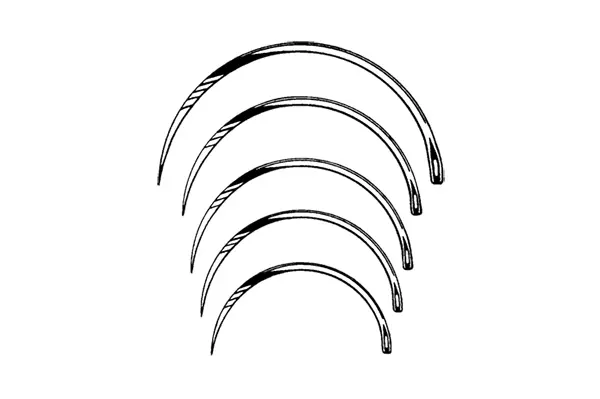Unraveling the Secrets of Surgical Needles
When it comes to surgical procedures, precision is of utmost importance. One crucial tool in the hands of surgeons is the surgical needle. But have you ever wondered what the smallest surgical needle size is? In this article, we will dive into the world of surgical needles, explore their sizes, and understand their significance in the operating room.
The Role of Surgical Needles in Medical Procedures
Before delving into the smallest surgical needle size, let's first understand the vital role these needles play in medical procedures. Surgical needles are thin, elongated instruments with a pointed tip used by surgeons to suture or stitch wounds or tissues during surgical interventions. They are typically attached to a thread or suture material, allowing the surgeon to secure incisions, repair tissues, or close wounds. Surgical needles come in various sizes and configurations to accommodate the specific requirements of different procedures.
Understanding Surgical Needle Sizes
Surgical needles are available in a range of sizes, and their size is determined by two key factors: diameter and length. The diameter, or gauge, of a surgical needle refers to its thickness. The higher the gauge number, the thinner the needle. Conversely, a lower gauge number indicates a thicker needle. The length of a surgical needle is measured from the point to the swage, which is the flattened portion where the needle is attached to the suture material.
The Smallest Surgical Needle Sizes
The smallest surgical needle sizes are typically found in ophthalmic surgeries. Ophthalmic procedures require exceptional precision due to the delicate nature of the eye. The smallest surgical needle size used in ophthalmic surgeries is typically around 10-0 or 11-0. These needles are incredibly thin and delicate, allowing surgeons to perform intricate procedures on the eye with minimal trauma. The "0" in the needle size represents the smallest gauge available, indicating its thinness.
It's important to note that while ophthalmic surgeries often require the smallest needle sizes, other surgical specialties may also use smaller gauge needles for specific procedures that demand precision, such as plastic surgery or microsurgery. These specialized procedures may require surgical needle sizes ranging from 10-0 to 6-0, depending on the specific requirements of the surgery.
Choosing the Right Surgical Needle Size
The choice of surgical needle size depends on various factors, including the type of tissue being sutured, the nature of the surgical procedure, and the surgeon's preference. Thinner needles are typically used for delicate tissues or procedures requiring intricate suturing. Thicker needles, on the other hand, may be employed for tougher tissues that require more strength and stability. Choosing the appropriate needle size is crucial for achieving optimal wound closure and minimizing tissue trauma.
Surgeons rely on their experience and expertise to select the most suitable surgical needle size for each specific case. They take into account factors such as the patient's condition, the location and type of incision, and the desired outcome. By carefully considering these factors, surgeons can ensure effective wound closure and promote proper healing.
Conclusion
Surgical needles are essential tools in the world of medicine, enabling surgeons to suture wounds and repair tissues during surgical interventions. While the smallest surgical needle sizes are often used in ophthalmic surgeries, other specialties may also require small gauge needles for precision procedures. The choice of surgical needle size depends on the specific requirements of each surgery, and surgeons rely on their expertise to make the appropriate selection. By understanding the significance of surgical needle sizes, we gain insight into the meticulous work performed by surgeons to achieve successful outcomes.
FAQs
Q: Do surgical needle sizes vary between different manufacturers?
Yes, surgical needle sizes can vary slightly between different manufacturers. While there are standard guidelines for needle sizing, small variations in diameter and length may exist between different brands. It's important for healthcare professionals to be aware of these differences when selecting and using surgical needles. Following the manufacturer's recommendations and guidelines is crucial to ensure accurate needle sizing and compatibility with the chosen suture material. If you have any specific concerns about surgical needle sizes and compatibility, it's best to consult with your healthcare provider or refer to the manufacturer's instructions for precise information.
Post time: 1月-29-2024






